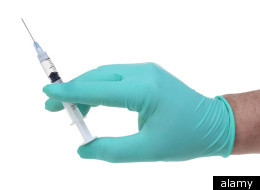Abstract
BACKGROUND
After promising initial results from the administration of a third (booster) dose of the BNT162b2 messenger RNA vaccine (Pfizer–BioNTech) to persons 60 years of age or older, the booster campaign in Israel was gradually expanded to persons in younger age groups who had received a second dose at least 5 months earlier.
METHODS
We extracted data for the period from July 30 to October 10, 2021, from the Israel Ministry of Health database regarding 4,696,865 persons 16 years of age or older who had received two doses of BNT162b2 at least 5 months earlier. In the primary analysis, we compared the rates of confirmed coronavirus disease 2019 (Covid-19), severe illness, and death among those who had received a booster dose at least 12 days earlier (booster group) with the rates among those who had not received a booster (nonbooster group). In a secondary analysis, we compared the rates in the booster group with the rates among those who had received a booster 3 to 7 days earlier (early postbooster group). We used Poisson regression models to estimate rate ratios after adjusting for possible confounding factors.
RESULTS
The rate of confirmed infection was lower in the booster group than in the nonbooster group by a factor of approximately 10 (range across five age groups, 9.0 to 17.2) and was lower in the booster group than in the early postbooster group by a factor of 4.9 to 10.8. The adjusted rate difference ranged from 57.0 to 89.5 infections per 100,000 person-days in the primary analysis and from 34.4 to 38.3 in the secondary analysis. The rates of severe illness in the primary and secondary analyses were lower in the booster group by a factor of 17.9 (95% confidence interval [CI], 15.1 to 21.2) and 6.5 (95% CI, 5.1 to 8.2), respectively, among those 60 years of age or older and by a factor of 21.7 (95% CI, 10.6 to 44.2) and 3.7 (95% CI, 1.3 to 10.2) among those 40 to 59 years of age. The adjusted rate difference in the primary and secondary analyses was 5.4 and 1.9 cases of severe illness per 100,000 person-days among those 60 years of age or older and 0.6 and 0.1 among those 40 to 59 years of age. Among those 60 years of age or older, mortality was lower by a factor of 14.7 (95% CI, 10.0 to 21.4) in the primary analysis and 4.9 (95% CI, 3.1 to 7.9) in the secondary analysis. The adjusted rate difference in the primary and secondary analyses was 2.1 and 0.8 deaths per 100,000 person-days.
CONCLUSIONS
Across the age groups studied, rates of confirmed Covid-19 and severe illness were substantially lower among participants who received a booster dose of the BNT162b2 vaccine than among those who did not.
A
fter a resurgence of confirmed severe acute respiratory syndrome coronavirus 2 (SARS-CoV-2) infections and severe coronavirus disease 2019 (Covid-19) illness in Israel,1 Israeli authorities approved on July 30, 2021, the administration of a booster dose of the BNT162b2 messenger RNA vaccine (Pfizer–BioNTech) for persons 60 years of age or older who had received a second dose of vaccine at least 5 months earlier. Initial reports have indicated that the booster dose was effective in reducing the rates of confirmed infection and severe disease against the currently dominant B.1.617.2 (delta) variant in the elderly population.2,3 Consequently, the booster campaign was extended to younger age groups in a stepwise manner: on August 13 for those 50 to 59 years of age, on August 20 for those 40 to 49 years of age, on August 24 for those 30 to 39 years of age, and on August 29 for all persons 12 years of age or older.
Although observational studies suggest that the booster dose is effective against both confirmed infection and severe disease in the elderly population, the extent of protection of an additional dose in younger age groups requires further clarification. Here, we quantified the booster effect on the adult population (≥16 years of age) relying on the analytical framework used to estimate the effectiveness of the booster dose in the population 60 years of age or older.2 The results also extend our previous analysis of the effect of the booster dose among those 60 years of age or older with a longer follow-up time and with Covid-19–associated death as an outcome.
Methods
GENERAL APPROACH
Our methods are similar to those applied by Bar-On et al.2 with minor modifications. Full details are provided in the Methods section in Bar-On et al.2 and in the protocol of that study, available with the full text of that article at NEJM.org….







